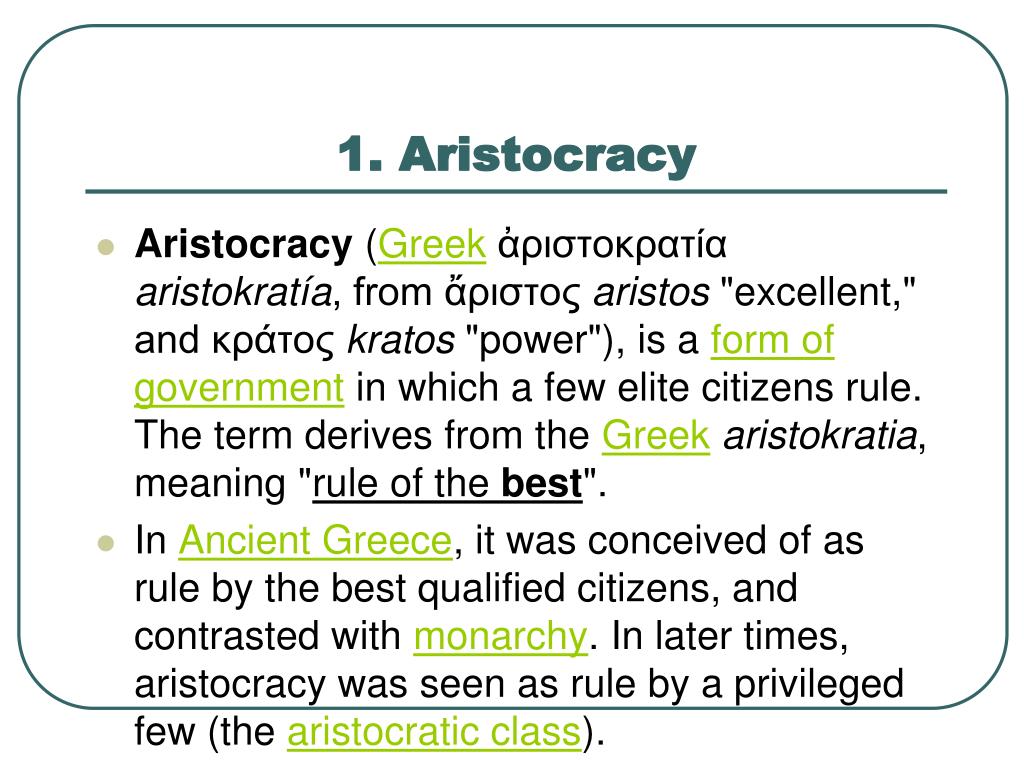
The IRS recently noted that in 2011, 11,445 U.S. income and, together with the next 9 percent, the superrich controlled 50 percent of all income. – along with much of the advanced capitalist world - is returning to what economist Paul Krugman calls the “new Gilded Age.” Piketty finds that that in 2010, the top 1 percent controlled 20 percent of U.S. Thomas Piketty’s study, Capital in the Twenty-First Century, reveals that the U.S. Oligarchs are plutocrats who use their enormous wealth to further a particularly conservative, if not rightwing, agenda. Today, both concepts - plutocrats and oligarchs - refer to the growing influence the rich – and especially the superrich – have on the national (and international) political economy. Plutocracy is derived from the Greek ploutos meaning “wealth” and kratos for “govern.” The term derives from two Greek words: oligos meaning “few” and arch for “rule” similar English-language terms include monarch or hierarchy.

Oligarchy is defined as “government by the few” and came into English use around 1570. Who are these oligarchs and how do they different from today’s plutocrats? And how does this generation of oligarchs differ from previous generations of the superrich who, over the last century, have dominated American politics? Sanders defined them as “a small number of very wealthy families who spend huge amounts of money supporting right-wing candidates who protect their interests.” He means to differentiate this “small number” from the larger world of the rich and superrich, the plutocrats, who – as a class – have long exercised considerable influence on the U.S. The term “oligarchs” is gaining currency in the U.S. They came to wield unprecedented power over the economy, the state apparatus and the mass media. The country was in disarray and, in an effort to stabilize the economy, the Yeltsin government “redistributed” state-owned enterprises to trusted cronies. Following the collapse of the Soviet Union, innumerable state companies were privatized. The contemporary concept of oligarchy was popularized by the Russian experience. Sanders acknowledged the potential consequences of the Court’s decisions: “The great political struggle we now face is whether the United States retains its democratic heritage or whether we move toward an oligarchic form of society where the real political power rests with a handful of billionaires, not ordinary Americans.”

He added, “this process - a handful of the wealthiest people in our country controlling the political process - is called ‘oligarchy.’” “If present trends continue, elections will not be decided by one-person, one-vote,” he warned. Senator Bernie Sanders (I-VT) lamented the toll these decisions will likely have on American popular democracy. Some wonder if this is not a 21 st century form of buying an election? FEC, allowing the rich to spend unlimited sums on political advertising. It followed the Court’s 2010 ruling, Citizens United v. The Supreme Court’s recent decision, McCutcheon v FEC, granted further political influence to the 1 percent, enabling them to spend as much as they wish influencing political campaigns.


 0 kommentar(er)
0 kommentar(er)
